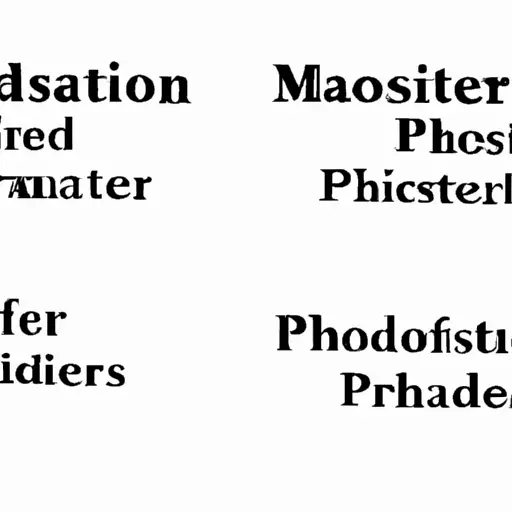There are various levels of academic programs offering graduate, postgraduate, and doctoral degrees in various fields. But what is the difference between a Master’s degree and a Ph.D.? Students are often perplexed as per the dissimilarities between the two degrees. If you are nurturing the zeal to embark on advance studied, then there is a need to have an idea about these two degrees in terms of career growth and opportunities. Let’s discuss the differences in detail.
So What is the Difference between Masters Degree and PhD?
1. Ph.D. takes more time than a masters degree
Ph.D. is much more demanding than a master’s degree in terms of time and course work. One can earn a master’s degree in any subject around a period of 1-2 years, where you get a specialization in a specific area of your field. But the Ph.D. dissertation is more research-based than that of a master’s degree. It takes about three to five years for a Ph.D. scholar to become a doctor in his or her field of study. In some cases, it can last more than five years or even more, depending on the commitment of the scholar.
2. Ph.D. involves a more in-depth study
Ph.D. scholars study a subject at a philosophical level. In Ph.D., every aspect of the selected area is studied deeply to lay a good foundation for their research work ahead. They grow to become authorities of the subject and instruct/teach any areas as per the subject. Wherein Master, the selected subject is studied to a limited level and only for the acquisition of knowledge. In other words, you can say that a Masters’s degree is just overviewed.
3. Research is practiced in a broader angle in Ph.D
Master-level research is limited. Research work is not internationally renowned and is overviewed by a local researcher at the university level or city level. Whereas in Ph.D., the research is extensive, in-depth, and is done on a broader level and covers a maximum area of research. Quality research and research papers are published internationally, and experts overview them.
4. Ph.D. researchers engage in the original study, i.e., something new.
Ph.D. scholars pursue their study to contribute new knowledge to academia via their findings. They offer a brand new interpretation of relatively taken-for-grant theories or approaches and strive to break new grounds. They do it through experiments or think about the world a little bit differently in response to a new context or environment. Whereas master synthesis knowledge, they take already existing knowledge and try to put it into a new shape or structure with limited research.
5. Ph.D. is more cost-intensive than Masters degree
Masters programs have more new entrants than Ph.D. programs. This, in addition to the research demands, makes the Ph.D. very expensive. The Ph.D. tuition is higher than the Master’s tuition, and the Ph.D. requires more funds for research. There are several scholarship opportunities for Ph.D. scholars than Masters scholars. A Master’s degree is the second level of professional study, which is done after graduation. Master programs are considered a step towards a Ph.D. in many countries. A Master’s degree can allow a concentration on a specific aspect of a subject. Master programs are quite similar to undergraduate degrees, where there are often taught courses except the research, which is practiced in Masters. Whereas, a Ph.D. program is considered to be a terminal (the highest) degree you can earn. Courses are relatively more prolonged than that of Master. In Ph.D. The main focus is your research in an entirely new field and to offer something new while working independently.

